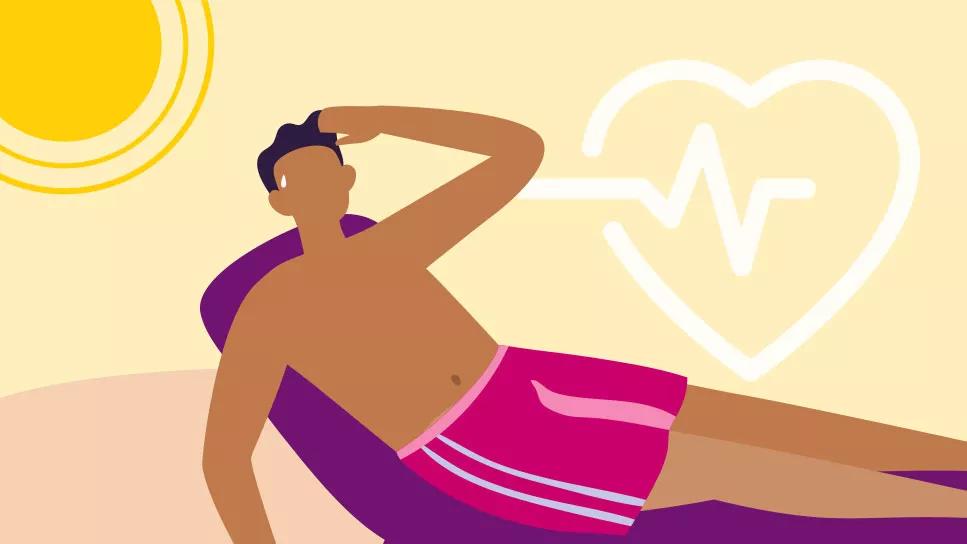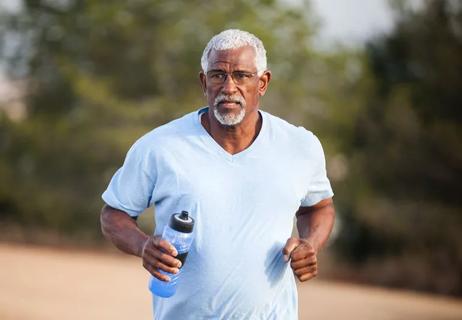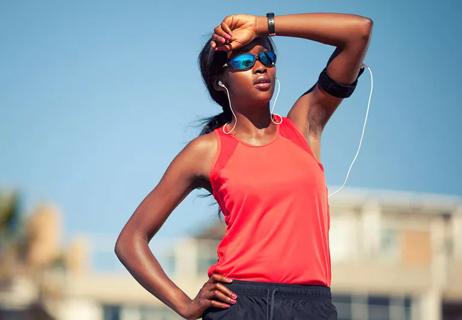Sizzling temperatures force your heart to work much harder

Lounging by the pool under the sun’s warming rays can seem pretty relaxing. Ditto for sitting back in a steamy sauna or soaking in a bubbling hot tub. Feeling that touch of heat is just soooo soothing.
Advertisement
Cleveland Clinic is a non-profit academic medical center. Advertising on our site helps support our mission. We do not endorse non-Cleveland Clinic products or services. Policy
But your heart may disagree. After all, it’s being forced to work way harder.
For every degree your body’s internal temperature rises in the heat, your heart rate increases by about 10 beats per minute. That natural reaction places added strain and stress on your ticker.
So, why does this happen? And what can (or should) you do about it? Let’s cool things down with some cold, hard facts from exercise physiologist Michael Crawford, MS, who specializes in cardiac rehabilitation.
Your life depends upon your amazing heart and its rhythmic task of pumping blood throughout your body. But did you realize that your heart-powered circulatory system also doubles as a cooling mechanism?
When it’s hot, your body radiates warmth to cool down. It does this by dilating (or expanding) blood vessels and increasing your heart rate and blood flow, explains Crawford.
As fast-moving blood streams through arteries and veins near the surface of your skin, it loses a bit of warmth to the outside air. The volume of blood rushing through in this cooling effort may be two to four times the typical flow.
“Your cardiovascular system really ramps up efforts to radiate heat to cool you down when it’s hot out,” says Crawford. “As part of that process, your heart ends up working much harder to get that blood around.”
Advertisement
Perspiration is another way your body tries to beat the heat. Every drip-drop of sweat offers a cooling effect as it evaporates off your skin.
That’s the good news. The bad? Sweating puts added strain on your body given the loss of sodium, potassium and other essential minerals that your organs — including your heart — need. Dehydration from excessive sweating also can stress your heart.
“Those losses just add to the extra demands being placed on your heart,” notes Crawford.
Absolutely! Just hanging out in the heat doing next to nothing puts added strain on your heart. If you’re not careful, sizzling temperatures also can lead to heat illnesses such as heat exhaustion and heat stroke.
The risk to your heart is even greater if you’re active on hot days, says Crawford. Remember, heat puts added stress on your heart even if you’re just sitting in a chair. Go on a training run or mow the lawn and you REALLY put your ticker in a tough spot.
The reason? Essentially, you’re asking your heart to do double duty as it works to cool you down and pumps harder to meet extra physical demands.
So, if the forecast looks sweltering, try to minimize the time you’re outdoors in the hottest hours of the day. If you’re going to be outside, aim for the cooler morning or evening hours for activities.
If your schedule puts you under the blazing sun, try to regularly:
Keep tabs on how you’re feeling, too. “If you’re in the heat and begin to feel fatigue or your heart rate going up, don’t ignore it,” advises Crawford. “It’s important to get your core body temperature down immediately.”
Advertisement

Sign up for our Health Essentials emails for expert guidance on nutrition, fitness, sleep, skin care and more.
Learn more about our editorial process.
Advertisement

Both heat illnesses can be life-threatening if left untreated

Aging poses unique challenges in higher temperatures

Anyone can get heat illness, so watch for signs that you need to cool down

Certain supplements, like licorice root and St. John’s wort, can raise your blood pressure or negatively interact with medication

No, but it momentarily slows down during this involuntary body function

Strokes affect your brain, while heart attacks affect your heart — both can be life-threatening emergencies

It’s an emergency if the pain doesn’t go away, gets worse or you have other worrying symptoms

Age, sex and genetics are just a few factors that can affect your risk of developing coronary artery disease

Even small moments of time outdoors can help reduce stress, boost mood and restore a sense of calm

A correct prescription helps your eyes see clearly — but as natural changes occur, you may need stronger or different eyeglasses

Both are medical emergencies, but they are very distinct events with different causes